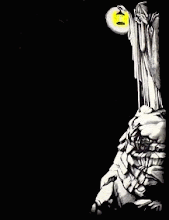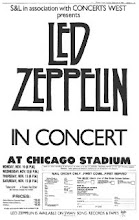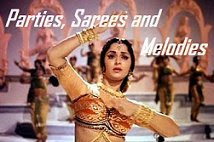Something that was lost in the CD revolution 20 years ago was the beauty of the record label. Capitol, Decca, Warner Brothers, Polydor: true design classics. Think of the Beatles and you think of black paper labels with a Parlophone pound-sign logo and the big "Capitol swirl" to show that you hadn't just bought a shrunken 78. Blondie's "Heart of Glass" could only ever be on the powder-blue Chrysalis label with a butterfly flapping in the corner.
Between the ages of seven and 14, though, the only label that counted for me was a murky brown colour with two white curvy lines, something that no one could mistake for the work of Barnett Newman or Peter Saville. It was the K-Tel label, home of the hits - usually 20 of them but sometimes as many as 24. For a boy on a dollar a week pocket money, K-Tel was the only label that could give me any hope of keeping up with the kids at school whose dads bought them a hit single or two every Saturday (usually on flashy labels such as Bell or RAK).
Every three months or so, a new K-Tel compilation would appear with a snappy generic title - Music Power, Disco Rocket, Star Party - and for around three bucks my collection would be bolstered with anything from Cockney Rebel and Pilot to War's "Low Rider" (cool) or Pussycat's "Mississippi" (not so). Philly soul, novelty, hard-rock, glam, whatever David Dundas was meant to be - it was all pop music to K-Tel. They were the kings.
Aged 12, more than anything in the world I wanted to work for K-Tel.The man whose job I coveted was Don Reedman, an Aussie who was in at the beginning and made a bomb with the Classic Rock and Hooked On Classics series.
K-Tel's boom years came to an abrupt halt in 1983. Squeezed out, K-Tel had ceased making records by the late Eighties, and reverted to its original purpose - selling kitchen gadgets.
The label's place in bri-nylon pop culture history is secure - the number of hits (five million at the last count) on a fabulous website called ktelclassics.com is testament to this. When you get down to it, K-Tel stood for pop in its purest form: Ultravox may still whine about the injustice of "Vienna" being kept off the top by "Shaddap You Face", but when you are sandwiched between Racey and the Gibson Brothers on a K-Tel comp there's no place for pretension or revisionism. It may not have been Motown, but K-Tel produced dozens of perfectly formed time machines. Your local thrift shop is waiting to transport you.
skip to main |
skip to sidebar

Without magic, there is no art. Without art, there is no idealism. Without idealism, there is no integrity. Without integrity, there is nothing but production.














Without magic, there is no art. Without art, there is no idealism. Without idealism, there is no integrity. Without integrity, there is nothing but production.
Posting:
Peace, love and good music. Period.
Beefheart

Disclaimer:
All links are up for a limited time and are for sampling purposes only , you must legally delete all tracks after 24 hours . And if you like the music buy it . Please support the artist and buy their work.
Zip, Zam, Zowee and Swoosh!


Fosterchild

Blog Archive
-
▼
2007
(106)
-
▼
September
(30)
- MUSIC POWER _ 22 Original Hits!
- K TEL SOUNDS SPECTACULAR - 1975
- K-TEL: THE SECRET HISTORY!
- Van Halen - 2007-09-27 - Charlotte, North Carolina
- Flo & Eddie - Illegal, Immoral & Fattening (1974)
- The Piper at the Gates of Dawn [LIMITED EDITION] [...
- The Beatles - 1969-01-31 - Apple Studio + Bonus
- The Beatles - 1969-01-30 - Apple Studios
- The Beatles - 1969 complete A/B Road sessions... a...
- Remembering Marc Bolan and T. Rex
- The Beatles - 1968 - The Beatles - Deluxe Volume 1
- The Beatles - 1968 - The Beatles - Deluxe Edition ...
- The Beatles - 1968 - The Beatles - Deluxe Volume 3
- The Beatles - 1968 - The Beatles - Deluxe Volume 4
- The Beatles - 1968 - The Beatles - Deluxe Volume 5
- The Beatles - 1968 - The Beatles - Deluxe - Whitec...
- The Beatles - 1968 - Magical Mystery Tour - Deluxe...
- The Beatles - 1968 - Magica Mystery Tour - Deluxe ...
- The Beatles - 1967 - Sgt. Pepper's Lonely Hearts C...
- The Beatles - 1967 - Sgt. Pepper's Lonely Hearts C...
- The Beatles - 1966 - Revolver - Deluxe
- The Beatles - 1965 - Rubber Soul - Deluxe
- The Beatles - 1965 - Help! - Deluxe
- The Beatles - 1964 - Beatles For Sale - Deluxe
- The Beatles - 1964 - A Hard Days Night - Deluxe
- The Beatles - 1964 - With The Beatles - Deluxe
- The Beatles - 1963 - Please Please Me - Deluxe
- The Purple Chick Series - 2007
- Graham Gouldman Songbook
- Kula Shaker - Two Live Concerts
-
▼
September
(30)
Cool Linkage:
- 12 Bar Original
- 2000 Mustangs
- 200MLE
- And Your Bird Can Swing
- Baistophe
- Blog Stoned
- Brand New Moodswings
- Burning Wood Tonite
- Camarillo Brillo
- Dex On Daz
- Elvis Latino Pacone
- For The Love of Harry
- Girl On LSD
- Go Home Productions
- Green Alien Chick
- Guitars 101
- Hear Rock City
- How To Open Links
- Juliocmail
- Just Add Cones
- Monkey Muck
- MP3 Rock Chick
- Musicnews 2008
- Never Get Out of The Boat Redux
- Octaner's Blog
- Parsons Project
- Psychedelia 1967
- Quality Boots
- Red Telephone 66
- Robots For Ronnie
- Rock and Pop Bootlegs
- Rock Rock Blog
- Soundaboard
- Stairway To Heaven
- Stax O Wax
- The Always Blue Society
- The Crime Lounge
- TUBE
- Vinyl Done Right
- Viva Les Bootlegs
- Weird Town
- Zinhof
- Zip Your Rip
...and she's buying a Stairway To Heaven.

The Who

RS

Led Zeppelin Concert

Forbidden Planet

TV

Test

My Boots

Desi


